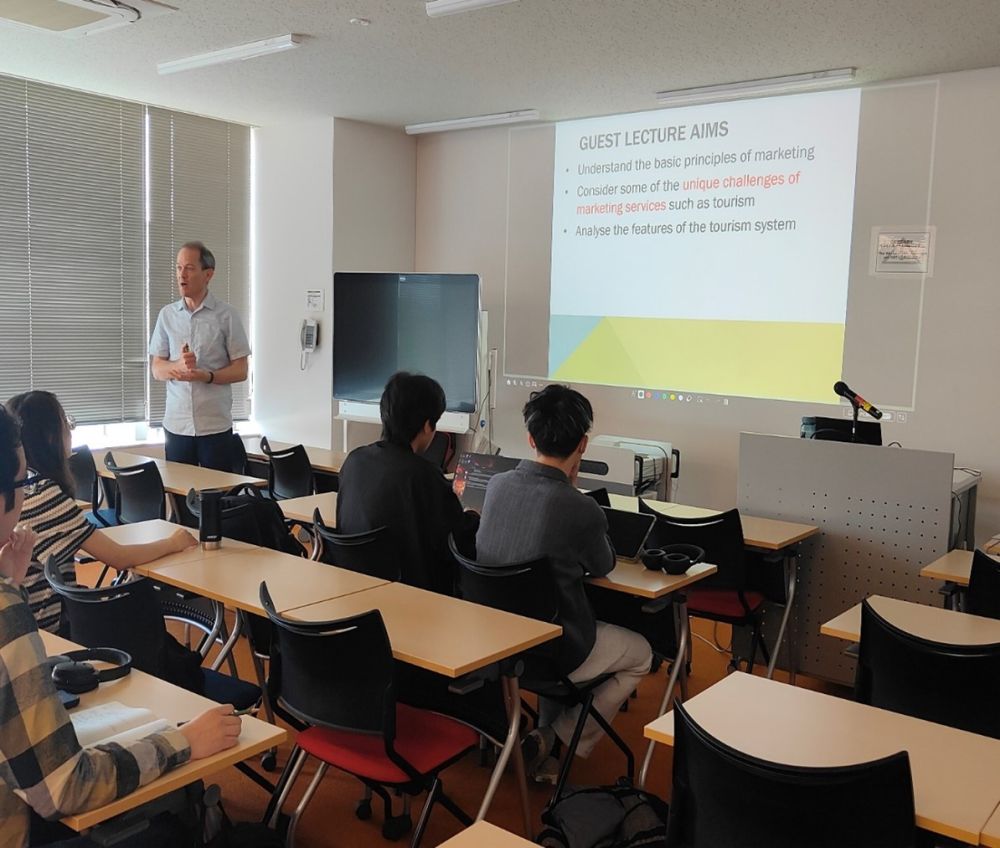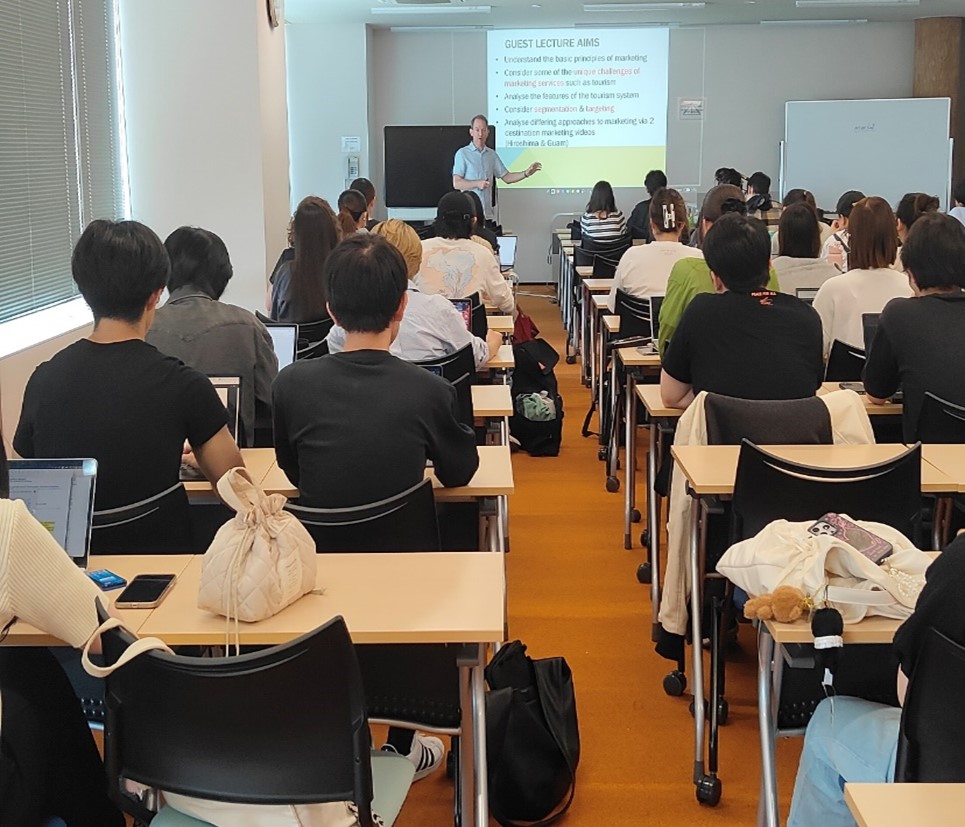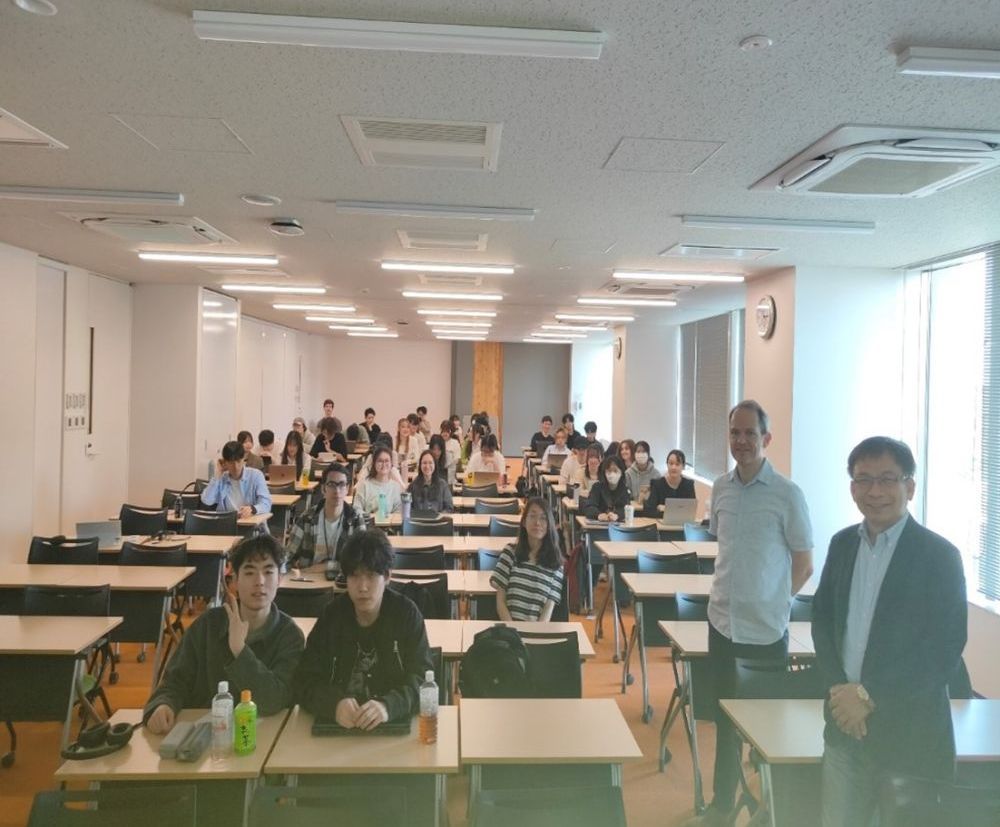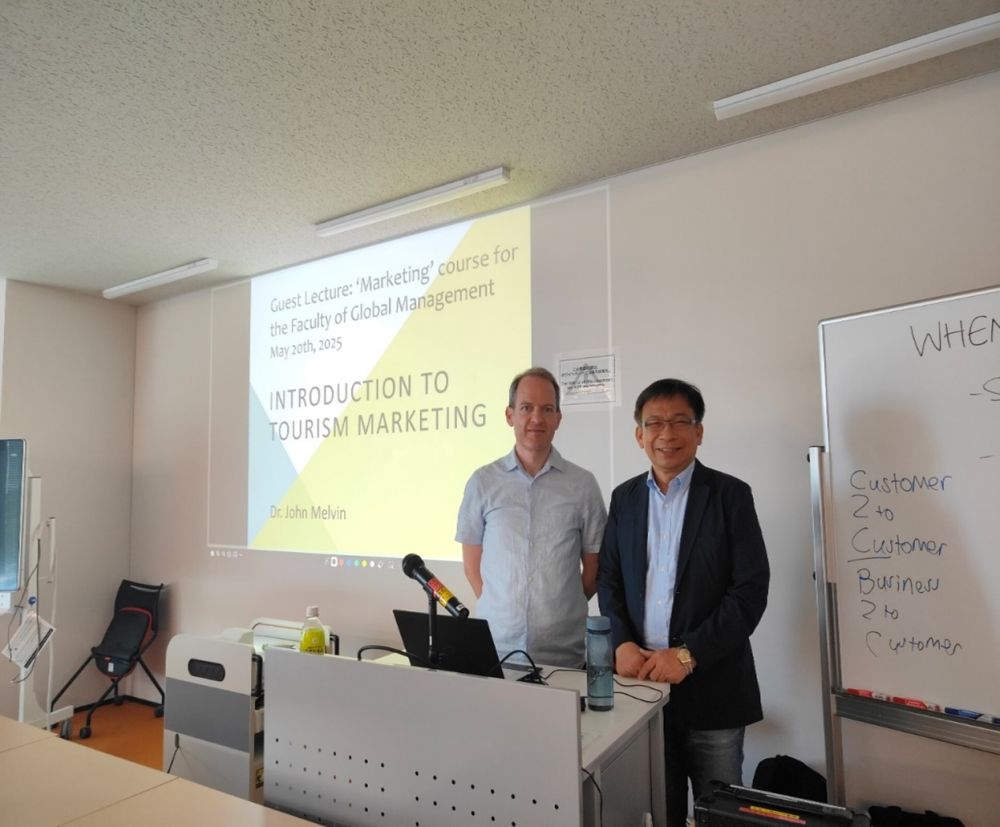
Dr. John Melvin is a faculty member at Hosei University’s Faculty of Global and Interdisciplinary Studies (GIS), specializing in tourism studies and marketing. Originally from Edinburgh, Scotland, he developed an early interest in history and culture as drivers of tourism. After teaching in Japan for seven years, he returned to the UK to earn an MSc in Tourism Marketing (with Distinction) from Edinburgh Napier University and later completed a PhD in Marketing at Nottingham University Business School, supported by the Christel De Haan Scholarship. His research focuses on value creation in tourism marketing and spans areas such as visitor attraction management, family tourism, and heritage tourism. At GIS, he teaches a range of tourism and marketing-related courses within the Business and Economics stream.

The guest lecture by Dr. John Melvin on "Introduction to Tourism Marketing" covered the fundamentals of marketing with a focus on the unique challenges posed by tourism services. Tourism, as an interdisciplinary and dynamic field, operates within an open system influenced by PESTEL factors (Political, Economic, Socio-cultural, Technological, Environmental, Legal). The lecture discussed strategies for destination marketing, emphasizing the importance of segmentation, branding, and crafting a unique identity to appeal to specific target markets. Case studies of destinations like Hiroshima and Guam illustrated the transition from traditional feature-based marketing to experience-based approaches that highlight emotional and experiential connections.


Sustainability was a central theme, stressing the need to balance economic, environmental, and socio-cultural impacts through concepts like carrying capacity and community involvement. Japan's efforts in sustainable tourism, alongside examples like Wazuka's "Teatopia" brand, demonstrated how thoughtful marketing can benefit destinations holistically. The lecture concluded with practical applications in pricing, promotion, and leveraging destination image, underscoring the role of trust and perception in driving tourism demand.
